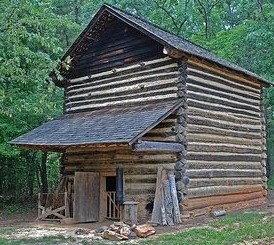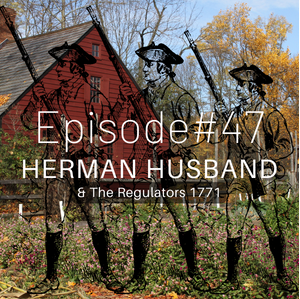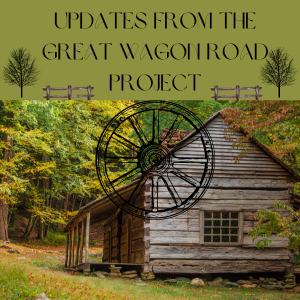Little did I know that my experiences with working in tobacco as a kid in rural North Carolina would inspire me to write about it many years later. At the time, I was more interested in the spending money it brought me. I did not care much for the black gum on my hands, the sleds overflowing with tobacco leaves and the endless handing and stringing these green dollar bills all day. It was hard work. In the early morning hours, the leaves would be wet with morning dew making your hands numb and your fingers feel like icicles. By afternoon, sweat would be pouring from you as the humidity filled the air. I don’t remember the things I purchased with my hard earned money, but I remember the work and the riveting talks at the barn.
I began as a hander, for those of you who don’t know what this is, I would pull three leaves from the pile on the sled, hold them by covering the top sections of the stems and hand them to the stringer. An average day of handing would consist of 5 to 6 sleds a day. Each stringer would fill the tobacco stick with bunches, one on each side until the stick was filled. Once completed, the stick was removed to lay on it’s side near the doorway of the barn. A break would be given in the morning, usually with cold soft drinks in glass bottles and a pack of crackers. Mountain Dew was my favorite drink and cheese crackers were my favorite snack. Occasionally, we would have a moon pie or a Little Debbie Oatmeal Cookie. Pepsi, Coke or Orange Crush for the drinks at times, but Mountain Dew in a glass bottle was my ultimate favorite. I still buy them today with the real sugar. I place them in the freezer just to get them chilled, not frozen. It reminds me of sitting on that empty sled back at the barn. Breaks are a real joy when you work hard.

The women would remain at the barn. They were in charge of the stringing, handing and stacking the filled tobacco sticks and the men were in charge of priming and filling the sleds. It was a race for the women to finish their sled before the men pulled another sled to the barn. Whenever we heard the tractor coming down the old farm road, we all worked even harder to empty our sled before the tractor would get there. Sometimes, we won and sometimes we lost. If we stayed caught up, it wasn’t too bad. But if we fell behind, well, let me say it’s not a pretty sight to be handing tobacco and see three sleds parked one after another. Those green leaves would be sitting in the sun wilting to a very soft and tender pile.

To break a leaf was a sin. My Great Aunt Ella would call them dollar bills and tearing them ruined the value. You pulled from the top of the stack and worked your way down which was easier said than done. Nevertheless, we all tried our best from breaking any dollar bills. The main two stringers were my great Aunt Ella and her older sister, my Grandmother. These two ladies were well into their sixties at the time and worked from sun up to sun down. Early meant 4:30 in the morning and late evening was 8:00 o’clock. Work in the fields began around 6 or 6:30 and we would come on to the scene at the barn around 8.
The barn chatter would begin immediately with regards to the weather, current news and the local gossip. Laughing and several jokes could be heard and a few disagreements with political manners and various other things. What I loved about these talks were days when Grandma and Aunt Ella, as everybody called her, were girls growing up in Stokes County. They remarked about old boyfriends, walking to school and church barefooted so they would not get their shoes dirty. Really? They would talk about their old friends and how so and so was out too late with that Johnson boy and then ended up leaving town to stay with her cousin in Tennessee. They would also challenge each other with who had the best memory, who was the fastest stringer, who could still run back to the house for dinner? Let me tell you, they both could still run very well.

There were discussions about how schools are taught the wrong way, how lazy people have become, how farmers will be a dying breed. They would talk about their family members who had passed on when they were kids, certain funerals, particular weddings and cracked jokes and stories about other individuals of whom I had no idea. At times, I would get to hear some very interesting stories about Mom when she was growing up. I loved hearing all of these and I would write the interesting ones down in an old notebook. One of the most fascinating stories was finding out that Mom failed the first quarter of English in the eleventh grade, a shocker to me. I later discovered that the teacher failed everyone in her class who was not in attendance at the football game and pep rally. The most interesting story was the discovery that Mom was engaged to marry someone else when she met my Dad. An overwhelming shocking truth. Evidently, Daddy swept her off her feet because after dating for six months, they were married. A marriage that lasted over 42 years until her death. Ironically, they met while harvesting a neighbor’s crop of tobacco.
These barn chats consisted of happy talks, sad talks, angry spats and at times no talks at all. Everything that life hands to you were discussed in some form or fashion at the barn. In between the green leaves, tobacco worms, spiders and an occasional black snake, the talks carried onward just like the breezes flowing around the barn. In reality, the talks helped with the work, it helped us all to get to know one another much better and we learned about others whom we would never meet in this lifetime. It passed the time until the sticks filled with tobacco were placed on the rafters in the barn and the job was done.

Once, I turned sixteen, Aunt Ella and my Uncle Raymond, namely known as “Bud”, began to slow down and the tobacco crops grew less and less. I no longer helped out at the barn or in the fields. I guess a girl begins to gain other interest when she turns sixteen, like a new car, dating, you know the normal sixteen stuff. I didn’t miss the work, but I did miss the stories and the normal barn chit chat. I reflect upon them from time to time and laugh to myself at all the fun we had. These are memories I will cherish always and to be honest with you, many life lessons were shared over those green tobacco leaves. Occasionally, we would all break out in song, while slapping at the bees and the flies. I would love to lean back on one of those old sleds right now, reach down and grab my ice cold Mountain Dew and hear those voices one more time. I would turn my head towards them, smiling at Grandma with her scarf over her hair and take a look at Aunt Ella as she slips a piece of gum in her mouth from her apron pocket. Most of all, I would Thank Them Both for not only the experience of working with them, but allowing me to hear their views from life. A priceless treasure indeed !! The talk at the barn while the tobacco leaves dance on the string.
Categories: Genealogy #OffTheGrid, North Carolina











I was a tobacco handler at age six at the farm of a neighbor of my grandparents. At the end of each day I received a quarter for a day’s work and I was proud to have a job and be earning money of my own. I remember my hands being sticky and covered with tar. When I got home I washed it off with kerosene. I remember the delicious noon meal the wife of the farmer fixed for the workers with vegetable fresh from the field. I remember the teenage girls working as stringers and listening to songs on the radio on a transistor radio one of them brought every day. At that time transistor radios were new and all the girls wanted one.
LikeLiked by 1 person
I enjoyed reading this so much. It reminded me of the summers I spent on my Aunt and Uncle’s farm in Marlboro County, SC in the 1940s and 50s. They grew cotton and tobacco in that wonderful sandy soil. I can still feel how hot that sand was on bare feet!
LikeLiked by 1 person
I remember visiting relatives in the 60’s, when I was very young, & I was so interested in the tobacco barn across the road from my aunt’s house. One day my dad took me over to watch, & they invited me to stay. I was so excited, as there was another little girl around my age, so we worked together as handers for the stringer. The stringer watched out for me & it started pouring down rain, so we all went to the middle of the barn & stayed packed in there until the rain stopped. I was so happy to “help”. My dad came & got me a few hours later, & I didn’t care that I was so dirty!! I only got to do it one day, but I will never forget it.
LikeLiked by 1 person
Fantastic memories, If only the kids today could experience this.
LikeLiked by 1 person
Love this post. Such familiar activities. >
LikeLiked by 1 person
I remember at the age of 5 in 1960 being stood on a 5 gal can to hand leaves.I was too small to reach the top of the slide. The next summer I hired to my uncle to work at his barn for 10 cents an hour I think I made 55 cents my first day. By age 10 I was in the field priming with the men. Then one time my cousin ask me to help him house a barn and when my dad found out I could house that became my job , from then until we stopped raising Our family farm was a few miles south of the NC/Va state line in Stokes county. Thru the years the tobacco farm paid for my first car, my first home (a 14 x 60 trailer) and a college degree from UNC. Thanks for the great memories I so enjoyed reading your story.
LikeLiked by 1 person
I thoroughly enjoyed reading this and remembering! I had never heard the word handler; where I lived in VA, we called ourselves handers. I was a stringer. My Dad and brother were pullers. Primings were the “first pulling” and contained the dirtiest leaves. “Tips” were the last pulling, and I remember more than once wearing a coat and pulling tips, too, by tractor and truck light so that an early frost wouldn’t ruin them. I hadn’t thought in years about finishing the slide before it returned, but you are right. Working hard to earn that short rest period was a great builder of the work ethic that tobacco taught so many of us.
LikeLiked by 1 person
Carol, I am one of the Johnsons of Stokes County (on Facebook) and would love to know more about your reference to the “Johnson boy.”
LikeLiked by 1 person
Hi Brenda, The identity of the “Johnson Boy” was never revealed to me. I recall this particular story because it was told more than once at different times while growing up. I know I inquired more detail about the story and the names but it feel on deaf ears and I never learned the true identity of him.
LikeLike